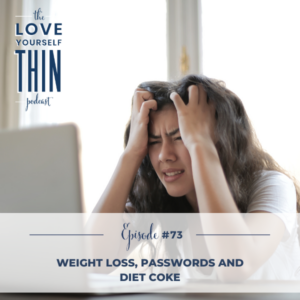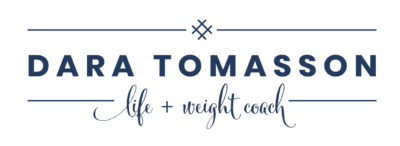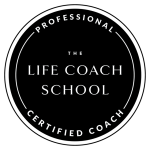 Do you have certain triggers that set you off to go for food? Do you find yourself turning to food when you feel like things aren’t going well? Do you ever feel like there’s something wrong with you causing you to not be able to lose weight?
Do you have certain triggers that set you off to go for food? Do you find yourself turning to food when you feel like things aren’t going well? Do you ever feel like there’s something wrong with you causing you to not be able to lose weight?
Today, we’re talking about passwords… my trigger and diet coke… a trigger for so many people. We’ll dive into what triggers look like, the underlying feelings behind them, and how to take the first step in dealing with those feelings. Let’s start believing in ourselves and turn hopelessness into hope. You are not broken. You can change. But first, you have to start thinking about your emotions and believing in yourself. Let’s go!
If you are ready to lose weight and change the way you think about hunger, sign up for the lifetime access membership for Love Yourself Thin! Doors are open and you can find all the information by clicking here.
What You’ll Learn from this Episode:
-
How to identify triggers and stop reacting to them
- How to get to the root of your weight loss problems
-
The blame/shame cycle that is keeping you down
- How to deal with your emotions rather than eating them
- How to regain control
Listen to the Full Episode:
Featured on the Show:
- If you are ready to lose weight and change the way you think, sign up for the lifetime access membership for Love Yourself Thin! Doors are open and you can find all the information by clicking here.
- Leave me a review in Apple Podcasts.
Full Episode Transcript:
73. Weight Loss, Passwords and Belonging
How often do you find yourself sitting in the Starbucks drive through and have eaten things that you hadn’t planned because you got triggered? Well, this episode is for you. I’m Dara Tomasson. This is Love Yourself Thin, episode 73, Weight Loss, Passwords and Diet Coke.
Hello everyone. I have been having so much fun planning this podcast for you. I’ve been wanting to do a podcast on passwords and diet Coke for so long. Passwords because I get really triggered from passwords and Diet Coke. Not that I have ever had a Diet Coke addiction. I’ve never even really had a Diet Coke, but of all the times where I’ve coached women on it and my observations, and I’m really excited to share this with you.
So this episode, you’re going to learn about triggers with weight loss, and you’re going to figure out how to stop being as triggered with what I’m gonna share with you today. But of course before we start, I’ve got a really fun win today and this actually came from a coaching call with one of my clients who has really struggled with sleep and it was interesting because we had the Sleep podcast and so I had mentioned to the ladies that our Thursday call was gonna be dedicated to sleep issues, which was so, so good because there’s so much out there that’s confusing about menopause and sleep and for some of us who’ve been moms and we’ve had disrupted sleep maybe we have teenagers or whatever it is, sleep is an issue.
And so it was really amazing to do this coaching with her because when we realized that her model of sleep was, so she actually felt hopeless, so her thoughts that she had about sleep created the feeling of hopeless, and when you fuel your actions from a place of hopelessness, it doesn’t go very well. It doesn’t go very far, and it definitely doesn’t give you the result that you want. And it was really fun because throughout the coaching call, so we do the live calls in Love Yourself Thin, and she was able to figure out what was going on. I said, well, what is the feeling you have now? And the feeling was hope. And there wasn’t a dry eye in the group.
And I think that so many of the women in Love Yourself Thin have battled so long with their weight. They’ve battled with so many struggles, and they just didn’t know how to solve them. And it was just one of those moments where I just couldn’t feel more honored to have created that environment for those ladies and for her to finally have some resolution to that. So that was a huge win, and it just fills my heart to know that there is this safe place that women can go and they can figure that out. So I’m just so happy for her and I know that she’s on her way to a lot more sleep, so that is really exciting. And now she knows that she’s not broken and she knows that she can fix it and she can move forward. So I love that for her.
So here we go. Today’s episode 73. Let’s do it. So let’s talk about why I’ve named this podcast, passwords and Diet Coke. So first of all, the question is what are triggers for you for weight gain? So what sets you off to go for food? Now in the handout I have two columns and I have the blame, so it’s other people’s fault and then the shame of I’m not good enough.
So what sets you off for food? So some of the things that set me off for food, definitely a hundred percent passwords. I used to spend so much time being frustrated about passwords.
I had a MasterCard once and I don’t know what was happening, but it was like anytime I tried to log in, it was the wrong password, and then my computer didn’t save it, and then I had to try to get a new one, and then it locked me out. So then I had to call them like it was this whole thing. And it was so frustrating and so annoying. And so then I finally just said, forget it. I’m not doing passwords with them. I’m just gonna have them send me a paper invoice. But it was just so fascinating because every time I would have a password thing, I made it into this really big deal, I would start talking about how unfair passwords were, I would think to the past of all the times where didn’t even need passwords, and I inevitably found myself downstairs in front of the pantry or in the baking section eating chocolate chips or frying myself some eggs and bacon or eating like crackers and cheese. It was unbelievable.
I was immediately triggered and I went into this rant and then I found myself eating food. So now it’s so much fun for me because now I have staff and they need passwords and sometimes they’ll have to message me and say, I need to get confirmation of this thing. Can you be by your phone? And I don’t make it a big deal at all. And now I even have this whole like system that I pay $20 a month for a way to keep track of all my passwords, like passwords are actually a big deal in my business, but I’m not triggered by them. And we just embrace them and we work through them. And it’s no problem because I’ve managed my brain over them.
And it’s also been really helpful because I’m not turning to food when I feel like things aren’t going well. So in the handout I want you to write down what are your triggers for food? Like what sets you off to go for food? So there’s the column of blame, so it’s someone else’s fault. So when I used to make dinner for my kids, And it felt really chaotic. I would definitely be like having the constant stream of the chocolate chips by my side while I was making dinner because I blamed my kids. I was like, you know, if they weren’t so loud or if they weren’t so busy, or if they weren’t so this or that. It was like I just couldn’t handle it. So that was definitely one of my blames.
Another thing that set me off for food was I would step on the scale and I would blame my DNA, or I would blame menopause, or I would blame just my family history or whatever it was. So that would just set me off and then I would feel like, you know, there’s no point. What’s the point of me even trying, I’m just destined to fail. And then, I also would blame an injury when I had bursitis. I would blame exercise and think, oh, the only way I could even think about losing weight is if I could exercise and then I can’t because of this. And I just went off, and then I’d eventually find myself eating a bag of crackers or overeating or whatever that was.
So then the other trigger, the other thing that set me off for food, was this idea of I’m not good enough. Like I must not be smart enough. I must not be capable enough. I must have lost that gene of figuring things out, like my body just doesn’t work properly. Like, I’m wrong, I’m broken. There’s something wrong with me. So that’s the shame column.
So I wanna just invite you to look at both those sides. And then also at the triggers to weight gain. I want you to spend some time there. So even sometimes the trigger is like success. I had a client who was being really successful with her weight and it was coming off consistently. And as she was finding it easy, and when she recognized and celebrated herself, she found herself like the rest of the day wanting to sabotage herself. Like that can be a trigger. So I want you to just write those down and spend some time.
Now, I’m gonna get to the Diet Coke in just a minute, but I like to share tools on this podcast because I believe that the more tools you have, the more you can create the life you want. Like, I think about you know, a toolbox, like a physical toolbox and hammer and a saw and all these things. When you know how to use a hammer and you know how to use a saw and you know how to do all these things, you could build any house you want. You could create the thing that you want to.
And when I think of the brain tools that I teach, the thought management tools, you can do that. So this episode, the tool that I wanna teach you is actually how to be honest with yourself without being mean or unkind. And so, when I think about how that relates to these passwords, what was really going on was, if I was to be honest with myself, it was like I was beating myself up for thinking I’m not smart enough to manage these passwords. Like, who am I to think that I can do these things if I can’t even manage passwords? Like, what’s wrong with me? So underneath that trigger was a feeling of incompetency of inadequacy. And I didn’t wanna deal with that actual emotion. So it was easier for me to rant and rave and to kind of throw my arms in the air and say, this is ridiculous what society has gone to. Right? It was just this really unhealthy pattern that I had and I didn’t know how to handle myself in that. So I would, to take some of the pressure off, I would turn to food.
So let’s go now to the Diet Coke section of this podcast. So I see this a lot with my clients. I’ve observed it anecdotally with friends and being at quilt retreats or being at different places. And I can’t even tell you how many times people would say, well, I just need my Diet Coke. I just need this thing. The problem is, and there’s lots of different studies about this, but basically our body doesn’t really know how to tell the difference between artificial sugar and real sugar. So a lot of people who drink Diet Coke, and for most people, their body is treating that Diet Coke, that synthetic sugar as regular sugar. And so they’re drinking this and they’re gaining weight, their insulin is being spiked, and they are gaining that weight.
And so the thing that they want when they’re drinking that Diet Coke is they want to have a different feeling. So when your body doesn’t know the difference between that real sugar or the artificial and your body’s turning to an external source to try to feel a feeling, that’s not a true feeling, you’re going to have a problem. Because you’re saying, I want relief, or I want to feel good. I want to have this emotion of calm or of excitement or whatever that is, but you’re not allowing it to come from the source, like, which all of our feelings come from our thoughts. So if you don’t allow yourself that, then you’re trying to make it happen, but by forcing it in, jamming it in, but it won’t work, right?
I have this visual of when you’re trying to shove a round peg into a square spot. It just doesn’t work. It can’t work. It’s not how the law works and so the problem is you’re going for the Diet Coke and you’re trying to feel something, but it actually can’t feel that way. Just like when someone turns to a cookie to try to get some relief or to that piece of chocolate, it will kind of feel like you’ve got a little bit of relief, but in reality it won’t last, it’s not the actual feeling. It’s kind of similar to it, kinda like artificial sugar. It’s kind of similar to regular sugar, but it’s not the real thing.
And so going back to the tool of being honest with yourself, without being mean or unkind, you’re not being honest with your body, you’re not being honest with what’s really going on, and so you don’t actually ever solve the real problem.
So in this episode, I really want to bring your attention back to the what’s setting us off. And I talk a lot about the shame blame cycle. I have excellent podcasts. The more I explain it, the more I talk about it in different ways.
Hopefully the more that you can really internalize what I’m talking about with blame and shame. So blame is when you don’t feel like you can get your results for yourself because of something outside of you, because you had the kind of parents you had because you grew up on that side of the tracks because you didn’t have that inspirational teacher because you didn’t get those breaks that other people had or whatever it is. Like that’s blaming and I gotta tell you, when you spend a lot of time blaming you are having a lot of progesterone and it’s this kind of really negative kind of fighting experience where you’re always feeling like you got your Dukes ready to fight. And so that’s super scary. And it feels like you’re out of control. So maybe people call you a control freak. I like to say control enthusiast, but you actually feel like you have to do that because it doesn’t feel safe. The world doesn’t feel safe because if you’re blaming other people for things, then it’s like, I don’t have control.
And now the flip side, the other way that we can spin outta control is shame. And shame is some version of I’m not good enough. I’m deficient. I’m insufficient. I am not smart enough. I am not capable enough. I am not trustworthy. I just haven’t got what it takes, and that is a lie And this shame has been something that a lot of women feel like they’re imposters because at the back of their mind they think, well, I’m not good enough and I don’t want anyone to find out. So you get really busy trying to prove to everyone by overachieving or by saying yes to all these people and running yourself exhausted because you don’t want anyone to find your secret that you believe is true, which isn’t actually true.
So this episode is really here to help you know that we get triggered as normal, but we don’t have to turn to the food. And when we do turn to food like Diet Coke, it’s just a net negative, right? It’s like you think that by turning to something outside of you is gonna make you feel better, but that’ll never work. It’s like a circle trying to fit in a square peg. It will never work because the real way that you can make real change is by creating that belief for yourself.
I’m just gonna share one more story before I close. So I had this client she’s been following me on Instagram for probably two years. And she just joined last month. And so I was coaching her about something and she said what she really wanted to feel was relief and she was able to share her emotions. She allowed herself to cry on the call. I think this was like her third or fourth time being with the group on the group calls. And she was totally vulnerable and she totally got this amazing coaching and had this huge breakthrough.
And I asked her, I said, so, How did you feel that you could be yourself? That you could actually be vulnerable and express how you feel and allow yourself to feel these emotions. It’s like you don’t know any of us, and you don’t really know me, like how are you allowing yourself to have this incredible experience right now? And when she thought about it, she said it’s because every time she heard me on Instagram, she felt hope and weight loss has always felt so hopeless for her. But what I pointed out to her was the only way that you can truly feel this hope is because you believe it yourself. Because I can tell everybody, I can tell everyone all these amazing things and I can share everything, but unless you have a certain level of belief in yourself and a certain level of belief that you can do this thing and that emotions are gonna help you, and that when you learn to manage your thinking, you won’t be able to change. And so I love that for her. And it was so much fun. She came to a webinar, and finally she’s like, yep. I’m doing it. She finally had enough belief in herself.
And the reason I share this is because I know a hundred percent that when you learn to trust yourself, when you learn to have these tools to help you, so you’re not triggered all the time and you’re not always turning to outside sources for feelings, which of course never can be real feelings, they’re just artificial. When you can believe enough in yourself, that’s when everything changes. And I just love that you’re on this podcast. I have so much love for you. I’m sitting in my studio and I’m imagining you in Africa, in Ohio, in like Ottawa, where I was born. I just picture all of you. I picture you sewing, I picture you walking, I picture you doing dishes, I picture you ironing. I picture you driving and doing errands, listening to this podcast and I love you. I love that you’re here and I love that you are building trust with yourself. It is truly an honor for me.
And I think about my time listening to a podcast with Jody Moore, I was quilting, back in like the summer of 2018, thinking you know what, maybe I could change, maybe I’m not stuck, maybe I’m not broken. And it took me some time to invest in myself, I’m not gonna lie. But once I did and once I was able to see what happened, I’m just so grateful and I just wanna share my love with you, and I’m so grateful that you are here and that you’re investing this time.
I do remind you I have these four calls a week and we can meet and we can talk and I can help you with solving whatever is a struggle for you right now. You know, it’s coming up Christmas season and can feel kind of out of control, especially after all the Covid stuff. It’s December 14th. Christmas is in 10 days. I’m here to help you and I’m telling you the Love Yourself Thin program, these women, everyone, it really is amazing and you really are worth learning these tools. All right, you take care everyone. Bye.






